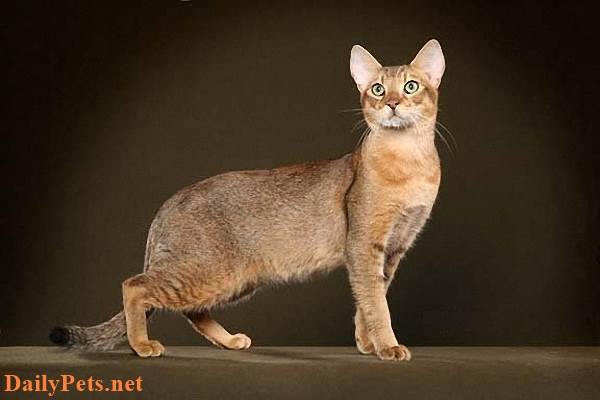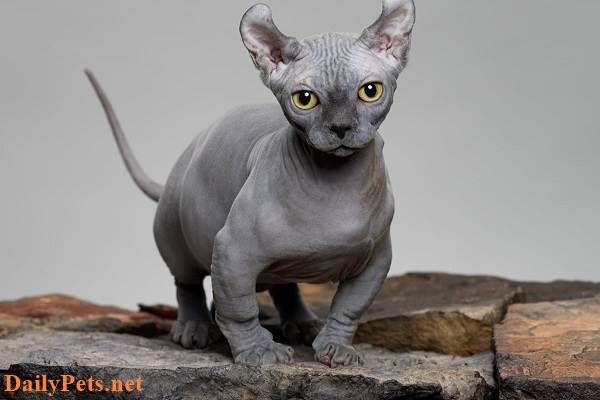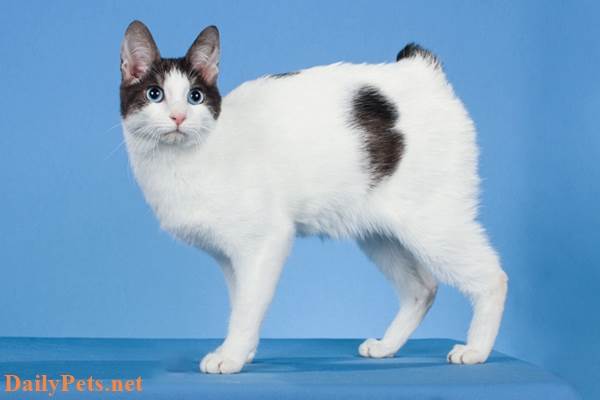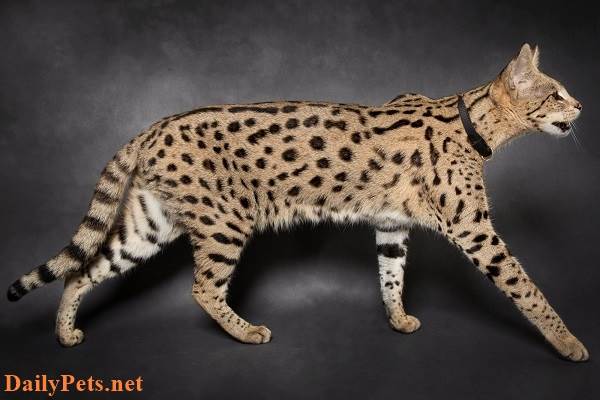These cats are known for their sweet and gentle personalities, making them excellent companions for families and individuals.
Origin and history of the Chinchilla cat breed
The Chinchilla cat is a breed of cat that was first bred in the late 1800s in England. They were developed by crossing Persian cats with Siamese and Burmese cats. The goal was to create a cat with silvery white fur and green eyes, similar to a Chinchilla.
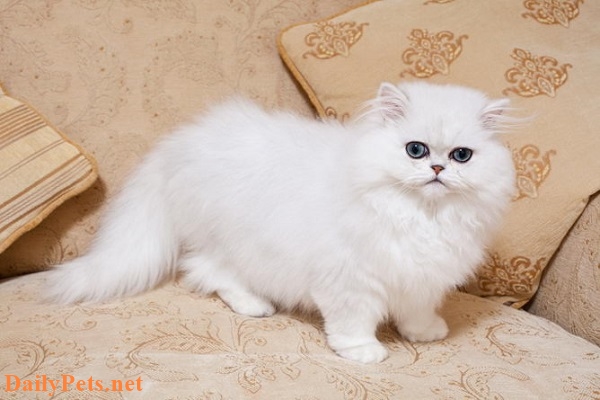
Chinchilla cat.
The first Chinchilla cat was a male named “Silver Lambkin,” introduced at the Crystal Palace cat show in 1888. Since then, this breed quickly became famous and reached the beginning of the By 1900, it had been recognized by many cat associations, including the British and American CFA
Although CFA and TICA recognize the Chinchilla as a branch of the Persian cat breed, other organizations recognize the Chinchilla cat as an independent cat breed unrelated to the Persian cat.
Physical characteristics of Chinchilla cats
The Chinchilla cat is a special cat known for its strikingly beautiful appearance. This cat breed has long, dense fur and large, expressive eyes. These unique and charming physical features have become popular among cat enthusiasts.
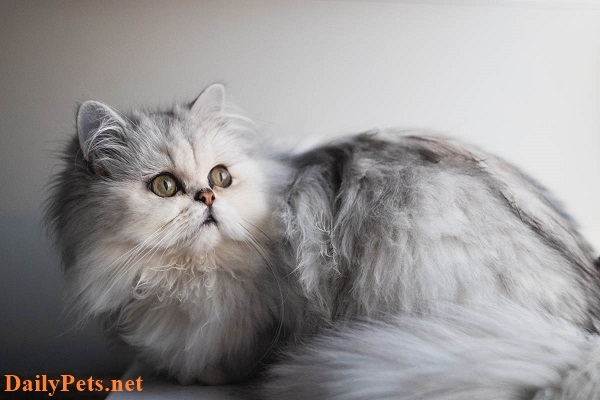
One of the most notable characteristics of the Chinchilla cat is its long, dense fur, which is very soft and silky to the touch. This cat breed has a thick undercoat with longer guard hairs, creating a luxurious appearance. The coat is usually silver or white, with black tips creating a shimmering appearance. The coat is thick and luxurious and requires regular grooming to maintain its shine.
Chinchilla cats have large, expressive eyes, usually blue or green. The eyes are round and widely spaced on the face, giving them a distinctive and attractive appearance. The ears are small and rounded, with tufts of fur at the tips, which adds to the breed’s overall appeal.
The body of the Chinchilla cat is long and thin, with a graceful and elegant appearance. The legs are long and slim, with small oval feet. The tail is long and slender, tapering towards the end. The body is usually smaller than many other cat breeds, with males weighing 3 – 4 kg and females weighing 2 – 3 kg.
Personality characteristics of Chinchilla cats
Many people love and appreciate Chinchilla cats for their gentle and loving personalities, making them wonderful companions.
One of Chinchilla cats’ most notable personality traits is their affectionate nature. These cats are known to be quite fond of their owners and love to be hugged, cuddled, and caressed. They love to curl up in their owner’s lap and purr contentedly. They are also very loyal to their owners, often following them around the house and responding when called.
Another personality trait of the Chinchilla cat is its gentle and calm nature. They like to spend most of their time lying down and relaxing. However, this does not mean that they are not mischievous or curious. They love to play with toys and explore their surroundings, but they do so gently and cautiously.
Chinchilla cats are also known to be very intelligent and intuitive. They can grasp their owner’s moods and emotions and often react accordingly. For example, if their owner is sad or upset, a Chinchilla cat can curl up on their lap and purr softly to help them feel better. They are also attentive, watchful, and alert to their surroundings, which makes them excellent at detecting potential dangers or threats.
How to take care of Chinchilla cats?
Caring for a Chinchilla cat requires proper attention to its unique needs, including diet, living environment, coat care, and health care.
First, Chinchilla cats need a diet rich in protein and fiber low in fat. Cat caregivers should provide their cats with high-quality food that meets these requirements and fresh vegetables and fruits for added nutrition. It’s important to avoid feeding your cat foods that are toxic to them, such as chocolate and onions.
Second, the Chinchilla cat cage must be spacious, clean, and airy. Your cat’s litter should be lined with soft bedding, such as shredded paper, cardboard, or carpet, and cleaned regularly to prevent respiratory problems.
Third, brushing is essential for Chinchilla cats to maintain their luxurious coat and prevent matting. Owners should brush their cats regularly with a soft-bristled brush. This breed also requires regular nail clipping to prevent overgrowth and injury.
Finally, Chinchilla cats need regular veterinary care to monitor their health and prevent or treat any underlying health problems. Regular vaccinations, dental exams, and parasite prevention are all essential for their health.
Health problems of Chinchilla cats
A common health problem that can affect Chinchilla cats is dental disease. This breed’s jaw structure makes them susceptible to dental problems such as overgrown teeth, abscesses, and cavities. Owners should buy their cats lots of chew toys and have their cats’ teeth checked regularly to prevent these problems.
Another health problem that Chinchilla cats may encounter is respiratory infections. These cats have delicate respiratory systems that are easily irritated by dust, smoke, and other irritants in the environment. Signs of respiratory problems include wheezing, coughing, and difficulty breathing. Owners should ensure that their cat’s living environment is clean and well-ventilated at all times and that they seek veterinary care immediately if respiratory symptoms occur.
Chinchilla cats can be susceptible to kidney and bladder problems. Symptoms of these problems include frequent urination, blood in the urine, and difficulty urinating. Owners should provide their cats with enough clean water and a high-quality diet to promote kidney and bladder health.
Chinchilla cats may also be susceptible to genetic disorders, including polycystic kidney disease and hypertrophic cardiomyopathy. These conditions may not be immediately apparent, so owners should work with their veterinarian to monitor their cat’s health and address any underlying health issues.
In short, although Chinchilla cats are generally healthy and can live an average of 12 – 15 years, they can still be susceptible to certain health problems. Owners should be aware of these problems and take timely measures to prevent and treat them.
Chinchilla cat price
The price of a Chinchilla cat can vary depending on a number of factors, including age, gender, breed, and purity. As a rare and special cat breed, their price can be relatively high compared to other popular cat breeds.
On average, a Chinchilla cat can cost from $500 – 3,000 $; with cats with high cuteness and some special characteristics, the cost can be many times higher.
It should be noted that the above purchase costs are just the beginning. As with any pet, there are ongoing costs involved in keeping a cat healthy and happy. These costs may include food, toys, litter, and veterinary care, including routine checkups and vaccinations.
In short, the price of a Chinchilla cat can vary widely depending on a number of factors, including the cat’s breed, age, pedigree, and overall health. Although these cats can be relatively expensive compared to other breeds, they are prized for their unique beauty and playful, affectionate personalities. It is important to consider the cost of buying and keeping a cat before adopting one.
